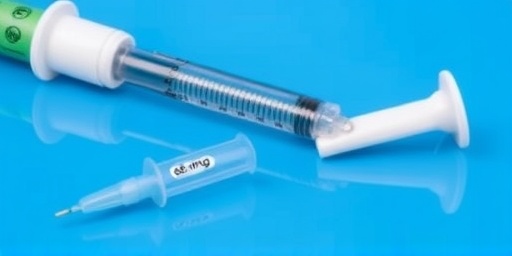In a shocking escalation of safety concerns surrounding weight loss drugs, the U.S. Food and Drug Administration (FDA) has issued an urgent nationwide FDA recall for compounded semaglutide injections marketed as affordable alternatives to Ozempic. Over 50 patients across at least 12 states have been hospitalized for life-threatening allergic reactions, including anaphylaxis, after using these unregulated compounded drugs. Health officials are urging immediate discontinuation and medical consultation for anyone with the product in possession.
The recall targets batches produced by several compounding pharmacies, which have been exploiting shortages of the branded Novo Nordisk medication Ozempic (semaglutide) to offer cheaper versions. Reports surfaced rapidly in recent weeks, prompting the FDA’s swift action on Friday, with contamination suspected as the primary culprit behind the severe adverse events.
Over 50 Hospitalizations Spark Nationwide Alarm
The crisis unfolded dramatically when emergency rooms began reporting clusters of patients presenting with symptoms of severe allergic reactions—swelling, difficulty breathing, rapid heartbeat, and in some cases, full-blown anaphylaxis. As of the latest FDA update, 52 confirmed cases have been linked to the compounded semaglutide, with incidents reported in California, Texas, Florida, New York, and eight other states.
“We’ve seen a 300% spike in semaglutide-related ER visits in the past month,” said Dr. Elena Ramirez, an emergency medicine specialist at Johns Hopkins Hospital. “These aren’t mild side effects; patients are arriving in shock, requiring epinephrine and ICU monitoring.” The FDA’s investigation revealed that many victims were otherwise healthy individuals seeking weight loss benefits similar to those popularized by Ozempic, which has surged in demand for its efficacy in treating obesity and type 2 diabetes.
- California: 18 cases, including 5 children under supervision of parents using the drug.
- Texas: 12 hospitalizations, with 3 requiring ventilators.
- Florida: 10 reports, linked to a single compounding pharmacy.
- Other states: Scattered cases in Illinois, Pennsylvania, and beyond.
One particularly harrowing incident involved a 42-year-old mother from Miami who collapsed at a family dinner after her second dose. “I thought it was a great deal—half the price of Ozempic,” she told reporters from her hospital bed. “Now, I’m fighting for my life because of impurities they didn’t test for.”
Contamination Culprit: Risks of Unregulated Compounded Semaglutide
At the heart of this FDA recall lies the inherent dangers of compounded drugs. Unlike FDA-approved Ozempic, which undergoes rigorous manufacturing standards, compounded semaglutide is custom-mixed by pharmacies during shortages. The FDA identified bacterial contamination, improper sterilization, and even foreign particles in recalled lots from facilities like Texas-based MediMix Pharmacy and California’s PureComp Solutions.
“Compounding allows flexibility but skips federal quality controls,” explained FDA spokesperson Dr. Mark Harlan in a press briefing. “We’ve found endotoxin levels 10 times above safe limits in these injections, triggering immune overreactions.” Endotoxins, remnants of bacterial cell walls, are notorious for provoking allergic reactions that mimic anaphylaxis.
| Compounding Pharmacy | Recalled Batches | Distribution States |
|---|---|---|
| MediMix Pharmacy (TX) | Lots SM-4567 to SM-4899 | TX, FL, CA |
| PureComp Solutions (CA) | Lots PC-2201 to PC-2250 | CA, NY, IL |
| Other facilities | Various (full list on FDA.gov) | Nationwide |
Historical precedents amplify the urgency. In 2012, a fungal meningitis outbreak from contaminated compounded steroids killed 64 people, leading to stricter oversight. Yet, demand for semaglutide—fueled by celebrity endorsements and social media hype—has outpaced supply, creating a black market for compounded drugs.
Surge in Ozempic Demand Fuels Knockoff Boom
Ozempic‘s meteoric rise began in 2021 when off-label use for weight loss exploded. Novo Nordisk reported $14 billion in sales last year, but persistent shortages—exacerbated by manufacturing delays and skyrocketing prescriptions—pushed patients to alternatives. Telemedicine platforms and wellness clinics began promoting compounded semaglutide at $200-$400 per month, versus Ozempic‘s $900+ list price.
“Patients are desperate,” noted obesity expert Dr. Sarah Kline from the Mayo Clinic. “Social media influencers tout 20-pound losses in weeks, but they rarely mention the risks of unvetted copies.” A recent survey by the American Medical Association found 40% of semaglutide users sourced from compounders, unaware of the regulatory gaps.
The FDA first warned about compounded semaglutide in June, citing dosing inaccuracies and sterility issues. However, this week’s FDA recall marks the most severe intervention yet, with Class I classification—the highest risk level, indicating “reasonable probability of serious adverse health consequences or death.”
- Shortages declared in 2023 due to overwhelming demand.
- Compounding pharmacies ramp up production under Section 503A exemptions.
- Adverse event reports to FDA’s FAERS database tripled in Q3 2024.
- Current recall expands to 15 pharmacies nationwide.
Patient Testimonies Expose Hidden Dangers
Behind the statistics are personal tragedies. Take Robert Jenkins, a 55-year-old engineer from Chicago: “I lost 15 pounds on the first vial, felt amazing. The second? Hives everywhere, throat closing up. I EpiPen’d myself and drove to the ER.” Jenkins is one of 20 plaintiffs already suing MediMix Pharmacy for negligence.
Similarly, influencer Lisa Grant, with 200K TikTok followers, shared her ordeal: “I promoted this as my Ozempic dupe. Woke up in anaphylactic shock. Never again.” Her video has garnered 5 million views, sparking public outrage and calls for tighter telemedicine regulations.
Demographics reveal a broad impact: 60% women aged 30-50, 25% men over 40, and a rising number of teens via parental prescriptions. “We’re seeing off-label use in non-obese patients chasing aesthetics,” warned the CDC in a related advisory.
Pharmacists are also sounding alarms. “We compound ethically, but copycats cut corners,” said National Community Pharmacists Association President B. Douglas Hoey. “This recall underscores the need for better FDA-pharmacy partnerships.”
FDA’s Aggressive Response and Path Forward for Semaglutide Users
The FDA has mobilized: All recalled compounded drugs must be destroyed, pharmacies face inspections, and a consumer hotline (1-888-SAFE-FDA) is fielding thousands of calls. Novo Nordisk, maker of Ozempic, issued a statement: “We prioritize safety; patients should stick to approved sources amid ongoing supply improvements expected by Q1 2025.”
Looking ahead, experts predict tighter compounding rules. Congress is eyeing the COMPETES Act amendments to limit semaglutide mixing, while states like California mandate sterility testing. For users, alternatives include FDA-approved Wegovy (higher-dose semaglutide) or generics like tirzepatide (Mounjaro).
“Verify your source—ask for USP 797 compliance,” advises the American Society of Health-System Pharmacists. Public health campaigns are ramping up, with the FDA launching a dedicated webpage tracking semaglutide shortages and safe providers.
As the weight loss revolution collides with safety realities, this FDA recall serves as a stark reminder: Bargain Ozempic alternatives come at a potentially deadly cost. Patients are advised to consult physicians for verified options, report symptoms via FDA MedWatch, and monitor updates as investigations continue into potential criminal negligence by rogue compounders.








